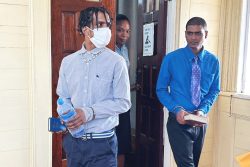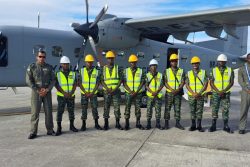HAVANA, (Reuters) – Cuba yesterday rejected a U.S. government report concluding that directed radio frequency was the most plausible explanation for mysterious ailments suffered by U.S. diplomats in Havana and elsewhere, calling it more “very unlikely” hypothesis than “demonstrated fact.”
Between 2016 and 2018, dozens of U.S. embassy staff, largely in Cuba, reported symptoms that included hearing loss, vertigo, headaches and fatigue, a pattern consistent with mild traumatic brain injury that came to be known as the “Havana syndrome.”
Canada has said more than a dozen of its embassy staff and relatives stationed in Havana experienced similar symptoms.
The administration of U.S. President Donald Trump said the diplomats were attacked by some sort of secret weapon. Cuba has repeatedly said there is no evidence for that and denied any involvement.
The Cuban Academy of Sciences said yesterday the report by the U.S. National Academies of Sciences, Engineering, and Medicine, commissioned by the U.S. State Department and published on Dec. 6, gives no scientific evidence of the existence of radio frequency waves.
“Cuba’s Academy of Sciences disagrees with the final conclusion regarding the causes of the ailments,” the academy said in a statement read to journalists by its President Luis Velazquez.
Velazquez, who did not take any questions at the news briefing in Havana, said the “investigation about these health ailments has suffered from a lack of fluid communication between U.S. and Cuban scientists.”
U.S. officials say off the record they cannot cooperate with Cuba on such a sensitive investigation where its Communist government has a strong interest in the outcome.
Cuba said the Trump administration has used the health incidents to further its political agenda of dismantling U.S.-Cuban relations, after Trump’s predecessor Barack Obama had worked to improve diplomatic ties with Havana.
The administration reduced the U.S. embassy in Havana to skeletal staffing and hiked its warning on travel to Cuba following the mysterious incidents.






